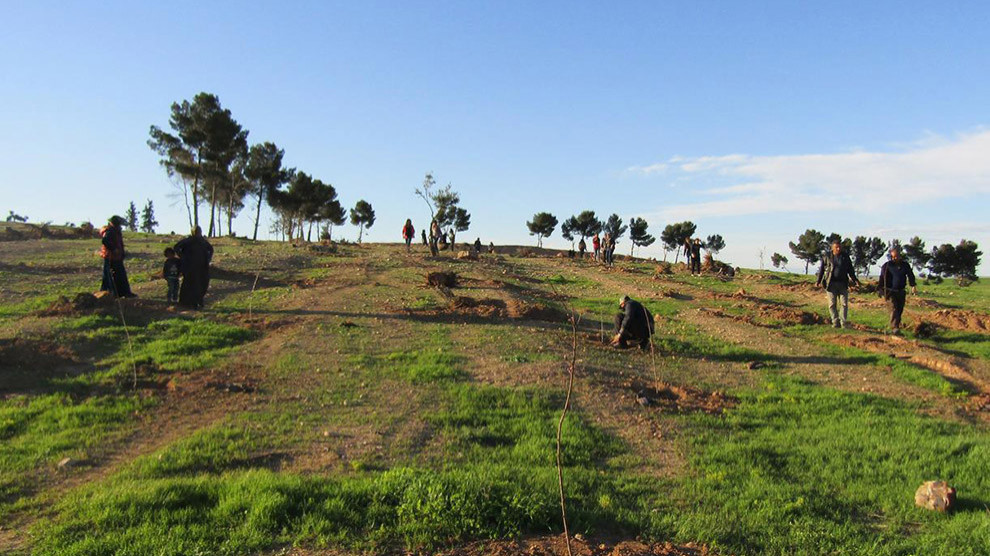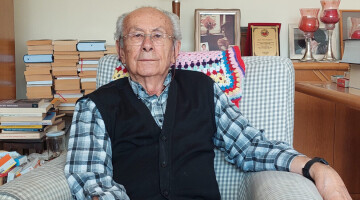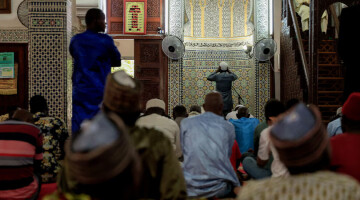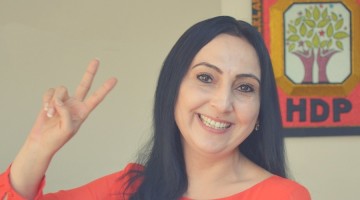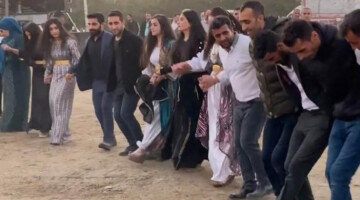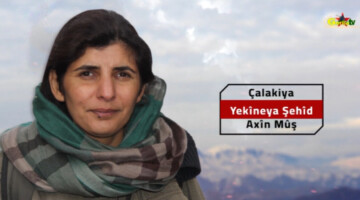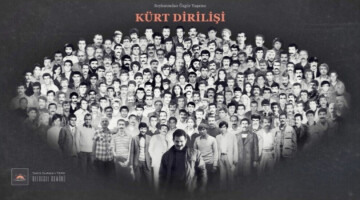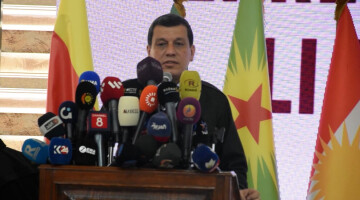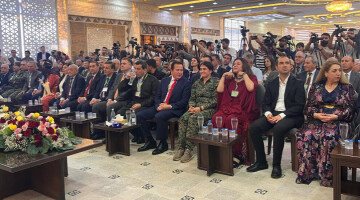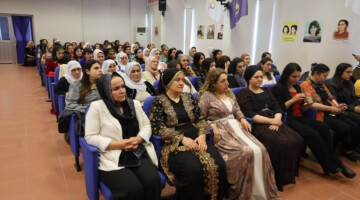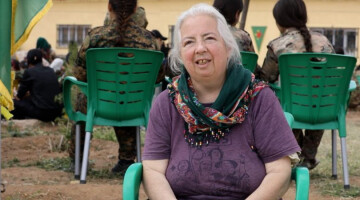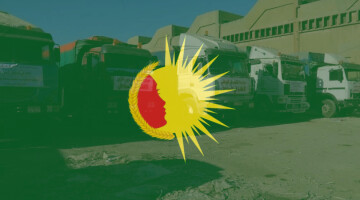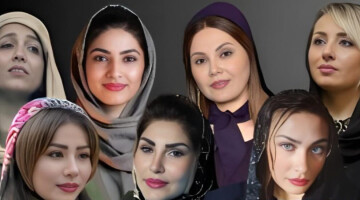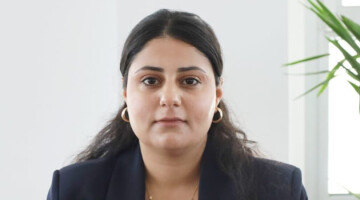In the slipstream of war and civil war, the self-governing structures in Rojava have created after the revolution a new democratic society based on people's councils and communes. The various ethnic, religious and social population groups in northern and eastern Syria participate equally in this process. This concept of democratic confederalism, implemented in Rojava, of reducing the state to local institutions in villages, towns and neighbourhoods and transferring all decision-making bodies to these institutions, is the grassroots democratic alternative for living beyond the state and goes back to the Kurdish leader Abdullah Öcalan. He was inspired by the ideas of the American socialist Murray Bookchin on liberal communalism and adapted them to the realities of the Middle East.
Öcalan's claim is to develop an alternative to capitalist modernity. Central to this is not only the democratic self-organisation of society but also the development of an alternative economy. Against the capitalist economy, which is still dominant in Northern Syria, a "democratic social economy" based primarily on cooperatives is meant to be developed. These were established in wide areas and gradually took on a more important role. Since 2017 they have been merging into superordinate structures.
The umbrella organisation of the Kurdish women's movement, Kongreya Star, is the main contributor to the development of an autonomous women's economy in the self-governing areas of northern and eastern Syria. For years, the women's cooperatives have been increasing in size and number, as they are an important way for women to gradually reduce their dependence on their fathers and husbands. In the Cizîrê region alone, Kongreya Star promotes the equal participation of thousands of women in dozens of agricultural cooperatives to increase the benefits for all members and the communities. In the meantime, 16 more cooperatives have been added, providing a livelihood for 409 women and their families. The cooperatives are located in Dêrik (al-Malikiya), Tirbespî (al-Qahtaniyya), Girkê Legê (al-Muabbada), Amûdê and Hesekê.
Another region where the system of democratic economy was most pronounced is Serêkaniyê (Ras al-Ain). There a four-hectare agricultural area was divided among 150 women and their families. With the Turkish occupation of the city with the green light given by Russia and the US, the cooperatives were destroyed. The people had to flee and their fields lay fallow.
According to Mehe Zoro from the Kongreya Star board of directors in Amûdê further cooperatives are planned. The funds are provided by the Economic Committee. "Although the attacks on Northern and Eastern Syria have a particularly negative impact on our economic work, the organization of the economy is a basis for organizing a free life. This awareness has created a spirit of solidarity among women to work together and to strengthen their ability to organize themselves and to be autonomous. This solidarity among women must be actively supported."
RELATED NEWS:

